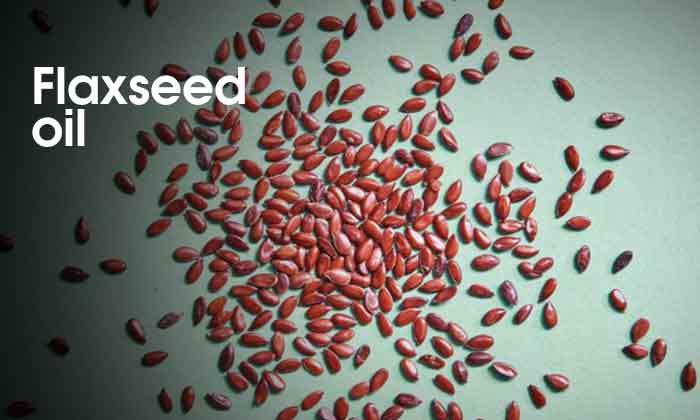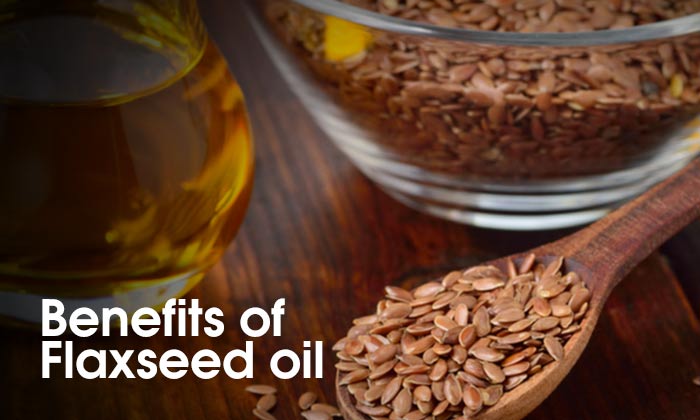
There are so many different types of oils available in the market. Olive oil, grapeseed oil, avocado oil, coconut oil, peanut oil, canola oil and the list goes on. We must admit that it becomes frustrating sometimes to tell apart healthy oils and fats from the unhealthy ones so that you can opt for the best option out there. At times, you don’t know where to start considering there are so many options.
Well, there is good news for you. You don’t need special qualification to distinguish healthy oils and fats from unhealthy ones. All you got to do is identify the healthy oils that are your favorite, know how to use them in the right manner, and then swear by those habits. And in particular, there is a healthy oil called as flaxseed oil which you must learn about in depth as it boasts of exciting health benefits.
Flaxseed Oil
The first and foremost thing to know about flaxseed oil [1] is that it is healthy mainly because of the high concentration of omega 3 fatty acids. Omega 3 fatty acids are a group of polyunsaturated fatty acids which help in many functions of the body including pulmonary, cardiovascular [2], endocrine, immune systems and play an important role in the structuring of cell membranes.
If you are nutrition-savvy, you may be aware that there are different types of omega 3. Flaxseed has something called as Alpha-linolenic acid (ALA). ALA is a source (plant based) of essential omega 3 polyunsaturated fatty acid (essential implies that it should be obtained through diet as the body does not make it naturally). Body converts ALA to healthy fats DHA and EPA, which are found in fish oil.
ALA is found in many plant based oils. And yes, it is found in flaxseed oil. It can be used as a supplement to get many health benefits like ALA has brain protecting properties. So what’s with the fish oil? Why not take it? You could even take a fish oil supplement that has omega 3 fatty acids DHA and EPA. But flaxseed is plant based so it is particularly great for vegans and vegetarians for whom it is sometimes difficult to incorporate appropriate levels of healthy fats in the diet.

Benefits of Omega 3s
Omega 3s have many health related benefits. A quite well known benefit is that these help fight depression. Research suggests that having omega 3 decreases the chances of depression by 17%. Another study found that omega 3 consumption improves cognitive abilities of young adults [3]. Further it is indicated that omega 3s can improve memory function in people having some level of cognitive impairment. So all in all omega 3s are being increasingly found to be important as far as healthy mood and brain are concerned.
It is also augmented by research that having omega 3s in adequate quantities from food or supplements can decrease the likelihood of cancer especially colorectal cancer and breast cancer. Omega 3s also improve blood pressure and can help reduce inflammation. They also help protect against autoimmune diseases which are illnesses that result from overactive immune system and in this the body starts attacking its own tissues.

Consuming omega 3 in good amounts is also beneficial for the health of the eye (decreasing symptoms of dry eye). Further a study which examined questionnaires from more than 200 women can link more consumption of omega 3s with decreased/less menstrual pain.
Benefits of Flaxseed oil
And now we shall discuss some flaxseed specific benefits [4]. Flaxseed can help in relieving constipation. According to a trial conducted on 50 patients suggested that when you use flaxseed oil daily, it is highly effective in treating constipation. (much like mineral oil ad olive oil) Research on animals shows that flaxseed has anti tumorous and anti cancerous effects and also help in decreasing the cholesterol levels. These findings may not be as relevant to omega 3 but to flaxseed oil as it is rich in omega 3.
Maybe you are looking out for a panacea for a chronic inflammation or health issues including pains and acne, poor sleep, improper appetite. So you basically want to fend them off. Flaxseed powder is shown to reduce inflammatory markers (particularly TNF-alpha and C-reactive protein) in men over a period of 42 days weight loss study. TNF-alpha and C-reactive protein are used for testing chronic inflammation.

Flaxseed also impacts blood sugar balance positively. It is a very important revelation considering 33% of Americans have prediabetes. When you consume flaxseed, the blood sugar gets reduced by 19.7% in people with type 2 diabetes. (In the study, patient consumed flaxseed powder everyday for a month).
Flaxseed Oil for Skin
There are a few studies which say that flaxseed oil can improve the quality of the skin. A study depicted that flaxseed oil reduces scaling, sensitivity and roughness of skin and made the skin more hydrated and smooth.
A different study says that skin damage induced by cigarette smoke can be improved with the help of ALA. (ALA is found in flaxseed oil) This is because ALA has anti inflammatory and antioxidant properties which reduces oxidative stress and also helps in synthesis of collagen. So don’t forget to add to flaxseed oil when you are making a recipe for your skin.

Dosing and Safety of Flaxseed Oil
As we have seen flaxseed oil has many benefits for our health. But what are the safety concerns? Flaxseed oil decreases platelet aggregation and because of this it could interact with antiplatelet and anticoagulant medicines. It might also decrease blood sugar so you should be careful about consuming it when you are on blood pressure medications as it may result in extremely low blood pressure. You must speak to your doctor before trying it.
You should also avoid eating unripe flaxseed as they contain toxic cyanide compounds. It is also advised to avoid flaxseed during pregnancy as they may have hormonal effects. Flaxseed oil and flaxseed may cause GI distress which includes constipation and diarrhea. So drink lots of water when you consume them as they are high on fiber.
Now how do you know if you should or should not have flaxseed oil? It depends on what nutrients you require. A tablespoon of flaxseed gives 2 gms of ALA and a tablespoon of flaxseed oil gives about 7grams of ALA. Flaxseed oil can also be taken as supplement and the recommended amount is 1000 mg two times a day.

Flaxseed Oil Cooking
So now an obvious question that must be arising in your mind is that what are the do’s and don’ts of introducing flaxseed oil in everyday routine. Flaxseed oil, yellow in color, is sensitive to light, heat and oxygen. Also you must not use flaxseed oil at high temperatures. It becomes smoke at 225 degree Fahrenheit. Also some studies say that heating the oil upto 350 degree does not affect the quality of the oil. The taste of flaxseed is also natural and it is obtained through cold pressing. Store it properly as it can easily become rancid. Keep it in a colored container in fridge but not more than six months.
So you got to know everything regarding incorporating flaxseed in your health care routine. Fortunately it is not difficult to take advantage of the many health benefits of flaxseed.




